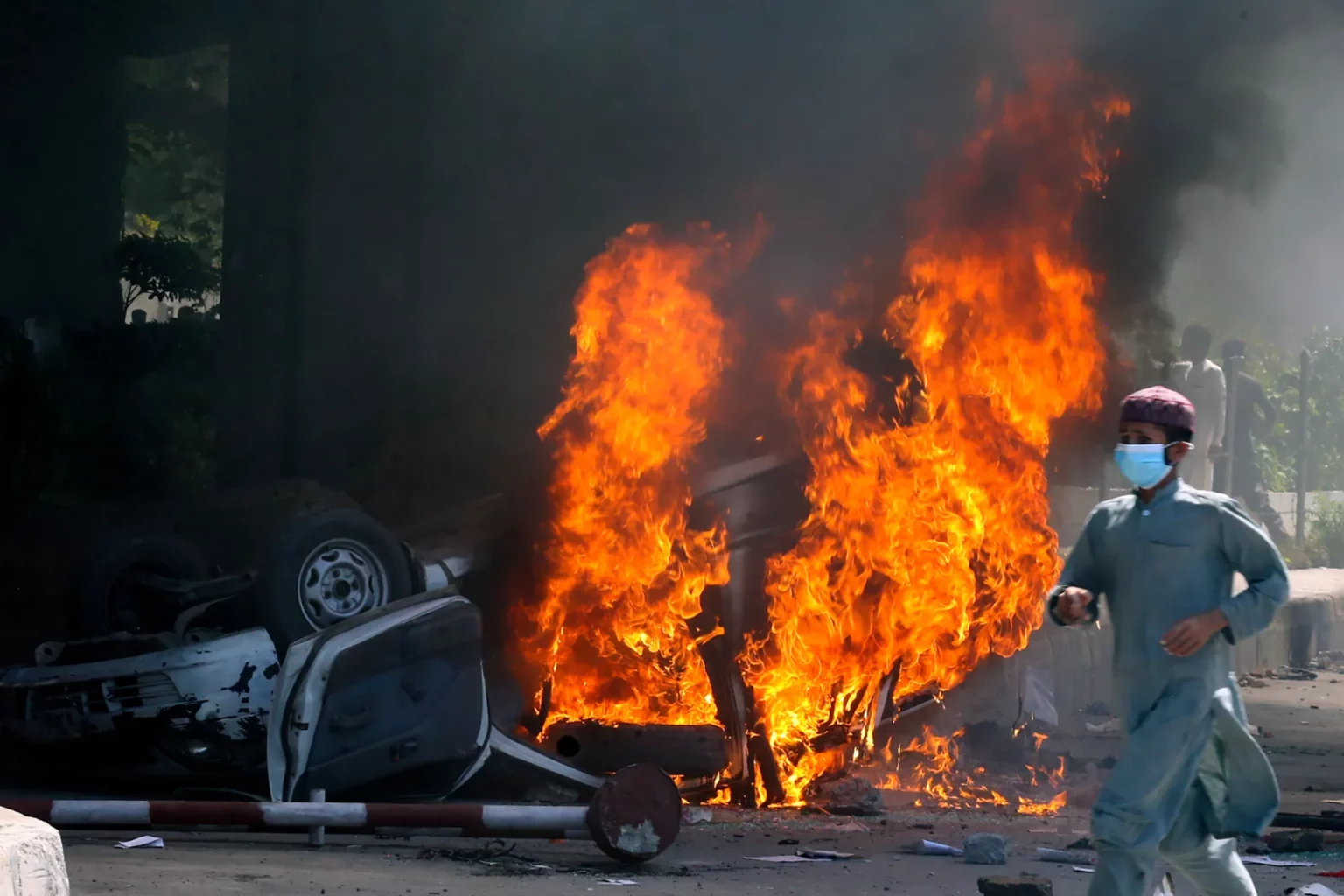The recent arrest of former Pakistani Prime Minister Imran Khan on corruption charges has sent shockwaves across the country, with protests and violence erupting in several cities. The situation has escalated tensions between Khan and the military, as well as raising concerns about the future of Pakistan’s democracy.
Khan, who is also a former cricket star, served as Pakistan’s Prime Minister between 2018 and 2022. He has denied the allegations of corruption against him, which relate to the transfer of land for Al-Qadir University near Islamabad. If convicted, Khan would be disqualified from standing for election, possibly for life. Elections are due later this year.
The arrest has been met with mixed reactions from the public, with some supporting Khan and others calling for him to face justice if found guilty. Protests have been widespread, with reports of violence and clashes with police resulting in at least eight deaths and over 1,000 arrests. The military has been deployed in some areas to restore order and protect its properties, which have been targeted by protesters.
The implications of Khan’s arrest on Pakistan’s future are significant. The country has a long history of political instability and military interventions, and many fear that this latest development could further undermine democracy. Khan’s political party, the Pakistan Tehreek-e-Insaf (PTI), has vowed to challenge the legality of his arrest in court.
The situation has also highlighted the ongoing power struggle between the civilian government and the military, which has a long history of interference in politics. Some critics have accused the military of orchestrating Khan’s arrest to weaken his party ahead of the upcoming elections.
In addition to the political implications, the protests and violence have raised concerns about the stability of the country. Pakistan is facing a number of challenges, including a struggling economy, rising inflation, and a surge in COVID-19 cases. The situation has been exacerbated by the ongoing conflict in neighboring Afghanistan, which has resulted in a large influx of refugees and heightened security concerns.
Overall, the arrest of Imran Khan on corruption charges has deepened political divisions and raised concerns about the future of Pakistan’s democracy. The protests and violence that have followed highlight the need for the government and military to work together to address the country’s challenges and promote stability.




